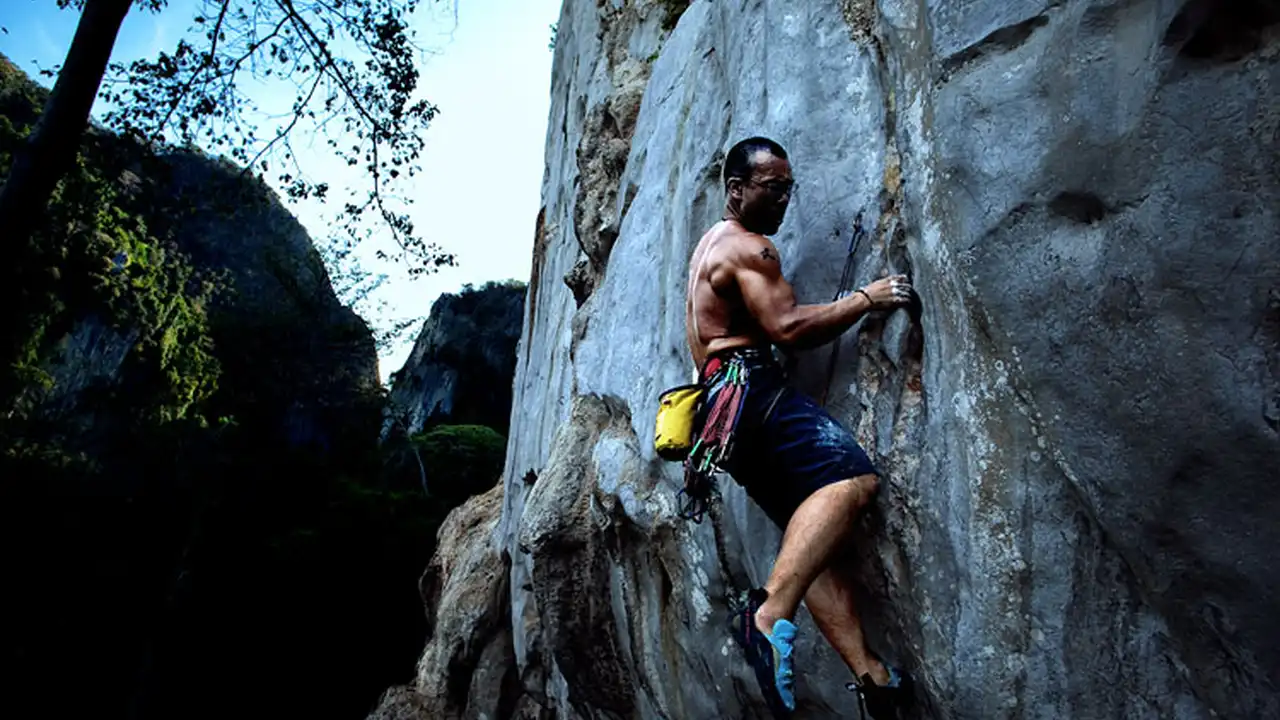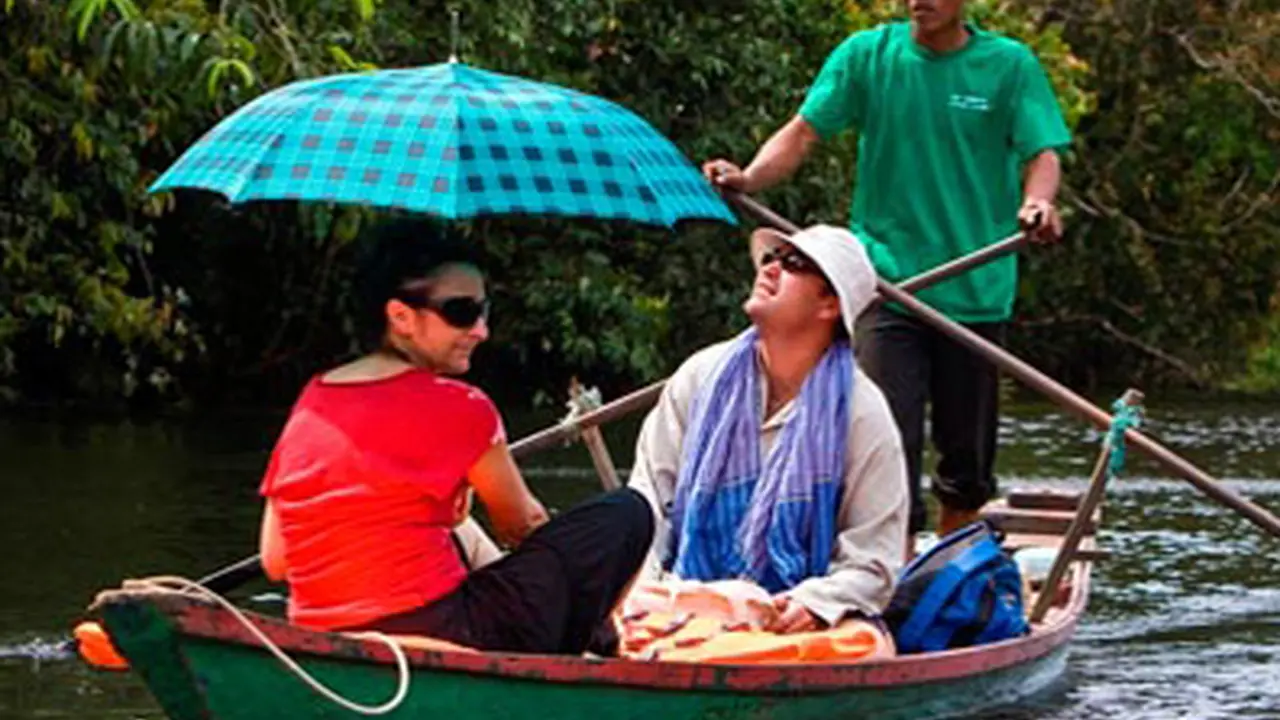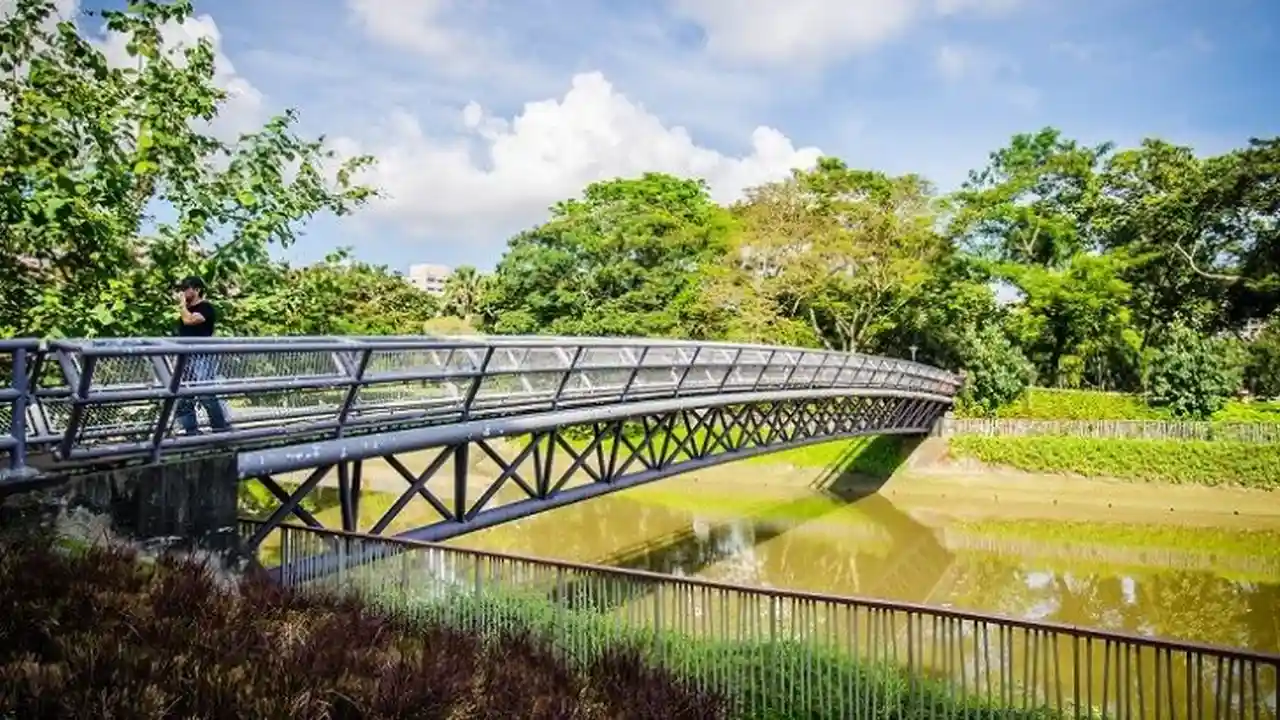7 Eco-Friendly Southeast Asia Tours
Explore Southeast Asia responsibly with these seven eco-friendly tour options. Support local communities, minimize your environmental impact, and experience authentic culture. Discover hidden gems while preserving the region's natural beauty.

Introduction to Sustainable Travel in Southeast Asia
Hey there, fellow adventurers! Southeast Asia is calling, and it's more breathtaking than ever. But before you pack your bags and dive into the vibrant cultures and stunning landscapes, let's talk about traveling responsibly. We're talking eco-friendly tours that not only let you experience the magic of Southeast Asia but also help protect it for generations to come. This guide is all about finding those hidden gems that are both awesome and sustainable. Think less tourist traps, more authentic experiences that give back to the local communities and environment.
What Makes a Tour Eco-Friendly Sustainability Factors
So, what exactly makes a tour \"eco-friendly\"? It's more than just planting a tree (though that's cool too!). We're looking at tours that actively minimize their environmental impact, support local communities, and promote cultural preservation. Here’s the breakdown:
- Minimizing Environmental Impact: Think reduced carbon footprint, waste reduction, and responsible resource management.
- Supporting Local Communities: Tours that employ local guides, use locally sourced products, and contribute to community development projects.
- Promoting Cultural Preservation: Experiences that respect and celebrate local traditions, customs, and heritage.
Top 7 Eco-Friendly Southeast Asia Tours Review and Comparison
Alright, let's get to the good stuff! Here are seven incredible eco-friendly tours that will blow your mind and make a positive impact.
1. Thailand Ethical Elephant Sanctuary Tour Responsible Animal Tourism
The Experience: Spend a day (or more!) at an ethical elephant sanctuary where rescued elephants roam freely. You'll get to observe them in their natural habitat, help with feeding and bathing, and learn about the sanctuary's conservation efforts. No riding involved – just pure, ethical interaction.
Why it's Eco-Friendly: Supports elephant rescue and rehabilitation, promotes responsible animal tourism, and educates visitors about elephant conservation.
Recommended Product: Pack a reusable water bottle like the Hydro Flask (around $30-$45). It keeps your water cold all day and reduces plastic waste. A good pair of comfortable, closed-toe shoes like Teva hiking sandals (around $60-$80) is also essential for walking around the sanctuary.
Comparison: Many sanctuaries claim to be ethical, but look for certifications from reputable organizations and ensure no elephant riding is offered. Avoid places that use bullhooks or force elephants to perform tricks.
Price: Day trips range from $80-$150 depending on the sanctuary.
2. Vietnam Sapa Trekking with Local Guides Community-Based Tourism
The Experience: Trek through the stunning rice terraces of Sapa with a local guide from a minority ethnic group. Stay in a traditional homestay, learn about local culture, and enjoy authentic Vietnamese cuisine.
Why it's Eco-Friendly: Supports local communities, provides income opportunities for ethnic minorities, and promotes cultural exchange.
Recommended Product: A lightweight, packable rain jacket like the REI Co-op Rainier Rain Jacket (around $90-$120) is crucial for unpredictable mountain weather. Also, consider a comfortable backpack like the Osprey Talon 22 (around $120-$150) for carrying essentials.
Comparison: Opt for tours that prioritize homestays in smaller villages and avoid large, commercial trekking groups. Look for guides who speak English well and are knowledgeable about local traditions.
Price: 2-3 day treks range from $100-$200 including accommodation and meals.
3. Cambodia Tonle Sap Lake Floating Village Tour Sustainable Tourism
The Experience: Explore the unique floating villages of Tonle Sap Lake with a responsible tour operator. Learn about the lives of the people who live on the lake, visit a floating school, and support local businesses.
Why it's Eco-Friendly: Supports local communities, provides educational opportunities, and promotes sustainable fishing practices.
Recommended Product: Sunscreen is a must! Choose a reef-safe sunscreen like Thinksport SPF 50+ (around $20). A wide-brimmed hat like the Outdoor Research Sun Runner Cap (around $30) will also protect you from the sun.
Comparison: Avoid tours that contribute to pollution or disrupt the local way of life. Look for operators that use smaller boats and respect the privacy of the villagers.
Price: Half-day tours range from $40-$70.
4. Laos Luang Prabang Eco-Bungalow Stay Eco-Friendly Accommodation
The Experience: Stay in an eco-bungalow nestled in the lush countryside near Luang Prabang. Enjoy sustainable practices like solar power, organic gardens, and waste reduction. Explore the surrounding area by bicycle or on foot.
Why it's Eco-Friendly: Minimizes environmental impact, supports local agriculture, and promotes a peaceful and sustainable lifestyle.
Recommended Product: A good mosquito repellent is essential! Try a natural repellent like Badger Balm Anti-Bug Balm (around $10). Also, a reusable shopping bag like the Baggu Standard Baggu (around $12) will help reduce plastic waste.
Comparison: Look for eco-bungalows that have certifications from sustainable tourism organizations and prioritize environmental conservation.
Price: Bungalows range from $30-$80 per night.
5. Malaysia Borneo Rainforest Conservation Project Volunteer Opportunities
The Experience: Volunteer on a rainforest conservation project in Borneo. Participate in reforestation efforts, wildlife monitoring, and community education programs. Get up close and personal with the incredible biodiversity of Borneo.
Why it's Eco-Friendly: Contributes to rainforest conservation, protects endangered species, and supports sustainable community development.
Recommended Product: Sturdy hiking boots are a must! Consider the Merrell Moab 2 Vent Mid Hiking Boot (around $100-$130). Also, a headlamp like the Black Diamond Spot 350 (around $40) will be essential for nighttime activities.
Comparison: Research different conservation organizations and choose one that aligns with your interests and values. Make sure the project has a clear and measurable impact on the environment and local communities.
Price: Volunteer programs typically range from $500-$1500 per week including accommodation and meals.
6. Philippines Palawan Sustainable Scuba Diving Marine Conservation
The Experience: Dive in the pristine waters of Palawan with a sustainable scuba diving operator. Learn about coral reef conservation, participate in underwater cleanups, and support responsible tourism practices.
Why it's Eco-Friendly: Protects coral reefs, supports marine conservation, and promotes responsible diving practices.
Recommended Product: Bring your own reusable water bottle and avoid buying plastic bottles on the boat. Also, consider a rash guard with SPF protection to avoid using excessive sunscreen. A good option is the O'Neill Wetsuits Men's Basic Skins 50+ Long Sleeve Rash Guard (around $30-$40).
Comparison: Look for dive operators that are certified by organizations like Green Fins and follow responsible diving guidelines.
Price: Dive trips range from $50-$100 per dive.
7. Singapore Urban Farming Tour Sustainable City Initiatives
The Experience: Discover Singapore's innovative urban farming initiatives. Visit rooftop gardens, vertical farms, and community gardens. Learn about sustainable food production in an urban environment.
Why it's Eco-Friendly: Promotes local food production, reduces carbon footprint, and supports sustainable urban development.
Recommended Product: Comfortable walking shoes are essential for exploring the city. A good option is the Allbirds Wool Runners (around $100). Also, a reusable coffee cup like the KeepCup (around $25) will help reduce waste.
Comparison: Explore different urban farms and learn about their unique approaches to sustainable food production. Look for farms that use organic methods and prioritize community engagement.
Price: Tours range from $30-$60.
Tips for Planning Your Eco-Friendly Trip to Southeast Asia Practical Advice
Okay, you're inspired and ready to book your eco-friendly adventure. Here are a few extra tips to make your trip even more sustainable:
- Pack Light: Less weight means less fuel consumption.
- Use Public Transportation: Buses, trains, and bicycles are all great ways to get around.
- Eat Local: Support local restaurants and markets.
- Reduce, Reuse, Recycle: Bring your own reusable water bottle, shopping bag, and coffee cup.
- Respect Local Culture: Dress modestly, learn a few basic phrases, and be mindful of local customs.
- Offset Your Carbon Footprint: Consider donating to a carbon offset program.
Finding and Booking Eco-Friendly Tours Booking Platforms and Resources
Where do you find these amazing eco-friendly tours? Here are a few resources to get you started:
- Bookings.com & Expedia: Filter by \"sustainable travel\" options.
- Responsible Travel: A website dedicated to responsible tourism.
- Local Tour Operators: Research local tour operators who are committed to sustainability.
:max_bytes(150000):strip_icc()/277019-baked-pork-chops-with-cream-of-mushroom-soup-DDMFS-beauty-4x3-BG-7505-5762b731cf30447d9cbbbbbf387beafa.jpg)






